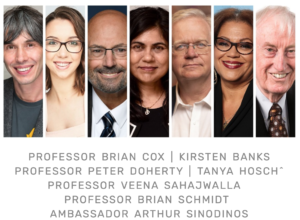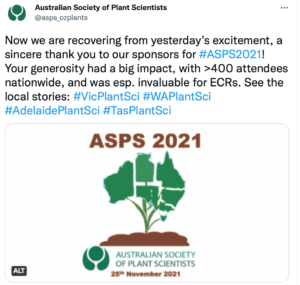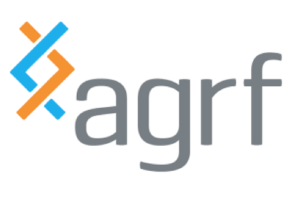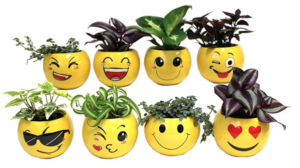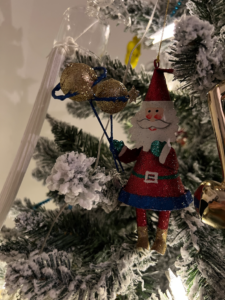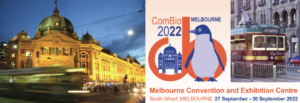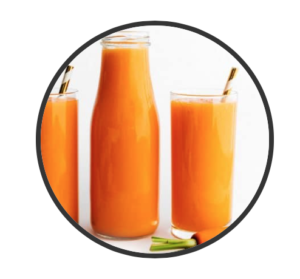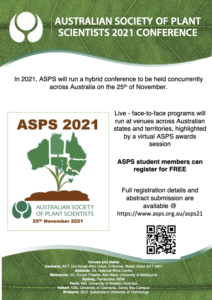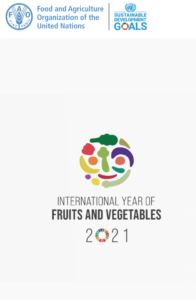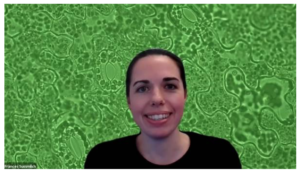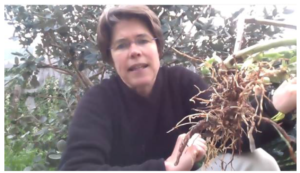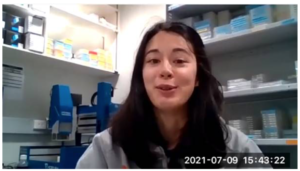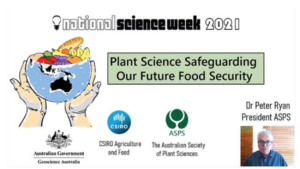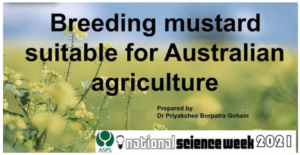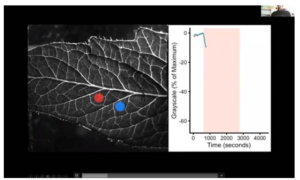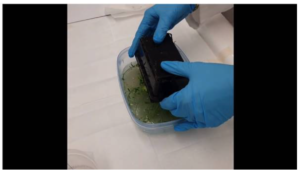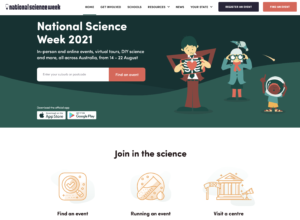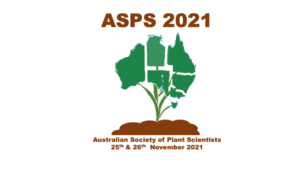- About
- Members
- Join
- Member log in
- Membership Renewal
- Member directory
- Life Members
- ASPS Life Member Professor Graham Farquhar
- ASPS Life Member Associate Professor Hendrik (Hank) Greenway
- ASPS Life Member Dr Marshall (Hal) D Hatch
- ASPS Life Member Dr Paul E Kriedmann
- ASPS Life Member Dr Mervyn Ludlow
- ASPS Life Member Emeritus Professor Rana Munns
- ASPS Life Member Conjoint Professor Christina E Offler
- ASPS Life Member Professor (Charles) Barry Osmond
- ASPS Life Member Emeritus Professor John W Patrick
- ASPS Life Member Dr Joe Wiskich
- Corresponding Members
- Elected Fellows
- Events
- Awards & Funding
- Employment
- Publications
- Research
- Teaching
- Menu
December 2021 Phytogen – Science Meets Parliament 2022
10 December 2021
Welcome to Phytogen for December 2021.
Here is a piece by Peter Ryan about Science Meets Parliament in 2022.
I would like to bring your attention to the 2022 Science Meets Parliament event organised by Science & Technology Australia (STA). STA is Australia’s peak body for science and technology professionals and represents more than 80 societies like ASPS. It conducts outreach sessions directed to the public and government and tries to influence public policy in these areas.
Each year STA organises its flagship event called Science Meets Parliament (SmP). This event connects parliamentarians with STEM practitioners in order to share ideas and build Australia’s excellence in science, technology, engineering and mathematics.
This event usually occurs in Canberra during a parliamentary sitting period. However, due to Covid19, the 2022 program will be a virtual event between Monday 28 February – Friday 4 March 2022. However, SmP is still an excellent experience that provides insights into government processes and how to effectively engage with policy makers. Delegates will be matched for a meeting with a Member of Parliament in the week 7 – 11 March 2022. This year the program also includes presentations from Nobel Laureates Peter Doherty and Brian Schmidt as well as the well-known astronomer and science communicator Brian Cox. More information on Science Meets Parliament and the detailed program is available from the links below.
ASPS is allowed to invite three members to attend this worthwhile initiative. Any members interested in applying should contact our Secretary Kim Johnson (kim.johnson@latrobe.edu.au) by 17 December 2021 to express their interest and provide a CV. We especially encourage early career researchers to apply. Please study the SmP program carefully being mindful of the dates and the time commitment it requires.
Regards, Peter Ryan
President ASPS
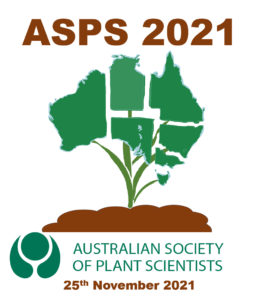
Well, wasn’t ASPS2021 last month amazing 🙂 Here is a summary provided by Mark Waters in Western Australia, with lots of photos added in.
About 400 attendees (of which just over 50% were students) joined the meeting across seven locations; South Australia hosted the largest meeting with 82 local attendees (of which 42 were students). Only one node (NSW) reverted to a fully virtual format because of concerns about restrictions on large gatherings, while the other nodes enjoyed traditional face-to-face talks and poster sessions.
As an example of the meeting format, we held three face-to-face sessions with oral presentations, each led by an invited early-to-mid-career speaker (Dr Yinglong Chen, Dr Caitlin Moore, and Dr Monika Murcha, all from UWA). All talk slots were kept short to enable as many speakers as feasible in one day; there were 13 additional speakers, of which ten were students, and ten were female.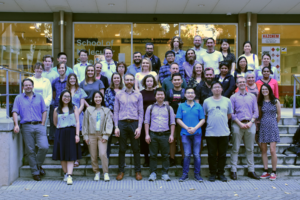
Between the first and second session, we joined the nationwide webinar, in which the annual ASPS award presentations were given. We were fortunate that the first speaker, Dr Joanna Melonek (Peter Goldacre awardee), presented locally from UWA; her talk, along with that of three other awardees across Australia, was simulcast to all nodes via Zoom webinar.
Attendees at UWA, Western Australia (courtesy of Roland Politan)
Interestingly, Dr Kim Johnson (Jan Anderson awardee, La Trobe University) chose to present her work in the form of a documentary-style video that featured interviews with her collaborators to discuss how they contributed to thevarious projects that supported her award. This approach was both entertaining and refreshing, and would not have been realistic in a traditional meeting environment. The WA meeting had 52 registrants, of which 26 were students; two attendees travelled all the way from Merridin about 250 km to Perth’s east, which necessitated an overnight stay, but they stated they were more than happy to attend a real meeting for a change!
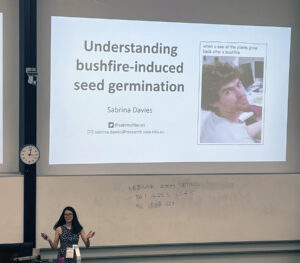
Left: Sabrina Davies presents at UWA, Western Australia (courtesy of Muhammad Kamran)
Below: Student prize winners at UTas, Tasmania; L to R: Thais Pfeilsticker (3rd), Kate Johnson (1st), Hassan Ahmed Ibraheem Ahmed (2nd) (courtesy of Frances Sussmilch)
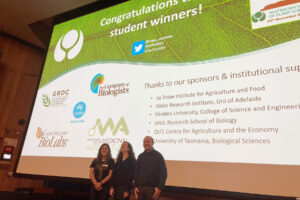
Below: Attendees at University of Melbourne, Victoria (courtesy of Mike Haydon) and attendees at QUT, Queensland (courtesy of Brett Williams)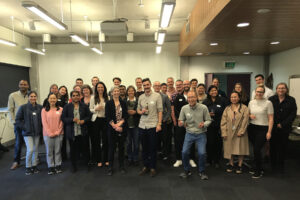
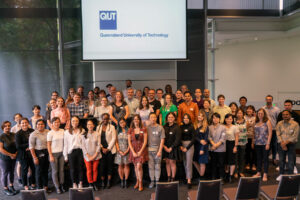
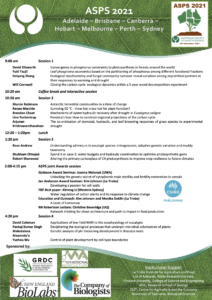
Left: NSW program for online event organised by Kristine Crous Below: Attendees in Adelaide, South Australia (courtesy of Georgia Koerber)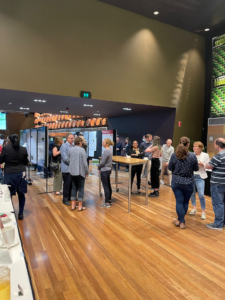
Based on informal feedback, we consider this experiment to have been a resounding success. Many attendees expressed appreciation of the opportunity to actually experience a proper meeting, without the expense and trouble of travel. Speakers evidently made substantial effort to deliver memorable and interesting presentations. There were some minor lessons to be learned about managing webinars and the value of high-quality AV equipment, and obviously small local meetings cannot fully replicate the benefits of meeting colleagues from further afield.
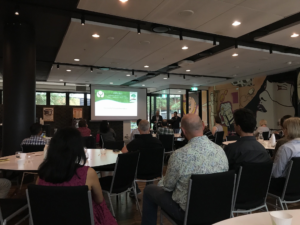
Right: Click to follow link to local threads on twitter for more photos.
Below: Attendees in Canberra with Peter Ryan introducing awards (courtesy of Caitlin Byrt)
We would like to thank again sponsors for supporting this venture, which has given us invaluable experience for the delivery of scientific meetings into the future.
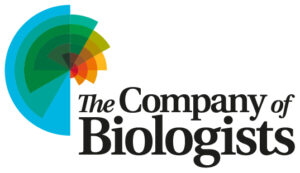
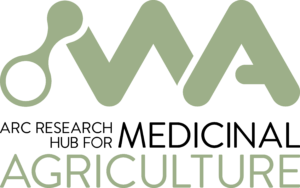
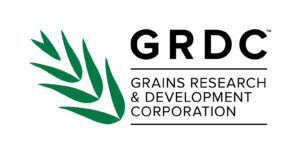
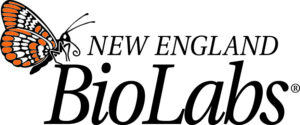
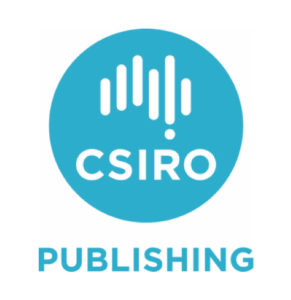
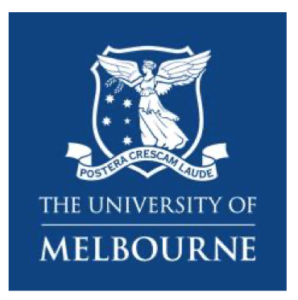
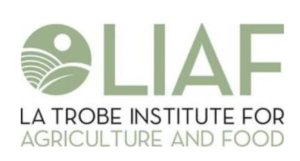
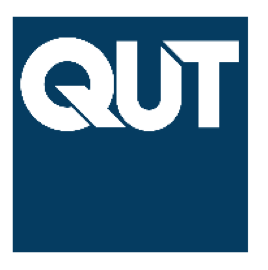


We wish you a Happy Christmas and a safe New Year |
|
Please login and check your ASPS membership is up to date. Encourage your colleagues and students to join ASPS. Go to: https://www.asps.org.au/members/join
Tweet to @asps_ozplants your news and upcoming events.
ASPS 2021, Phytogen and GPC e-bulletin
18 October 2021
Hello ASPS members,
Reminding you the extended early bird registration and abstracts for ASPS 2021 close this Friday at 5 pm EST. Register or submit an abstract HERE.
The ASPS AGM is virtual again for 2021 held on Friday 26th November at 12 noon EST.
Our October issue of Phytogen is out now and can be accessed HERE.
The October Global Plant Council e-Bulletin can be downloaded HERE.
See you at ASPS 2021.
18 October 2021
Hello ASPS members,
Reminding you the extended early bird registration and abstracts for ASPS 2021 close this Friday at 5 pm EST. Register or submit an abstract HERE.
The ASPS AGM is virtual again for 2021 held on Friday 26th November at 12 noon EST.
Our October issue of Phytogen is out now and can be accessed HERE.
The October Global Plant Council e-Bulletin can be downloaded HERE.
See you at ASPS 2021.
October Phytogen – Time to register for ASPS2021
17 October 2021
Welcome to Phytogen for October 2021. On the weekend it was World Food day, very significant in this Year of Fruits and Vegetables.
To get you thinking about food, you might like to watch Matt Tucker from the University of Adelaide explaining how crops have developed over hundreds of years of cultivation. The talk provided excellent descriptions of genetic engineering and gene editing.
If you haven’t managed to register yet for ASPS2021, this week is the time. Grab a carrot juice or which ever fruit and vegetable juice you like and head to the registration page.
Abstracts are due and Early bird registration applies until this Friday 22nd October. I am sure you will enjoy the spectacle of our states meeting up for the award talks in the middle of the day (12 noon AWST or 2pm AEST) on 25th November 2021.
Five ASPS Award Lectures:
Peter Goldacre Award Presentation & Lecture: Dr Joanna Melonek (University of Western Australia)
Jan Anderson Award Presentation & Lecture: Dr Kim Johnson (La Trobe University)
Best FPB paper Award Presentation and Lecture: Dr Ximeng Li (Western Sydney University)
RN Robertson Lecture: Professor Christine Beveridge (University of Queensland)
Teaching and outreach Award Presentation & Lecture: Dr Kim Johnson and Associate Professor Monika Doblin (La Trobe University)
Please login and check your ASPS membership is up to date. Encourage your colleagues and students to join ASPS. Go to: https://www.asps.org.au/members/join
Tweet to @asps_ozplants your news and upcoming events.
ASPS needs you, September Phytogen, GPC e-Bulletin and ASPS 2021.
20 September 2021
Hello ASPS members,
We need your feedback on our ASPS Diversity and Inclusion policy. Details are in the current Phytogen issue including the policy document.
You can then add you feedback HERE. Use this code 23190235
The September issue of Phytogen can be accessed HERE.
The September Global Plant Council E-Bulletin is available HERE.
You can register for ASPS2021 HERE.
September 2021 Phytogen
15 September 2021
Welcome to Phytogen for September 2021.
It is two months until our meeting. Hope you are all managing to write and submit abstracts. Registration is now open for our 2021 ASPS hybrid conference on the 25th of November 2021.
In the lead up, we would like to collect feedback from our members on our Diversity and Inclusion Policy. Here is an introduction from Past President Professor Kathleen Soole, Flinders University and President Dr Peter Ryan, CSIRO ACT:
Science and Technology Australia is Australia’s peak body in science and technology, with a mission to advance the public good and social and community welfare and strengthen society through education outreach and programs. ASPS is an active participant in this group. In 2018, our Honorary Secretary that year, Dr Vanessa Melino, attended the Science and Technology Australia (STA) Annual general meeting, where discussions focussed on how our scientific societies are dealing with diversity and inclusion in their membership and activities. An outcome from this meeting was the development of a draft Diversity and Inclusion Policy put together by Drs Vanessa Melino, Eloise Foo and Megan Shelden, which was presented and supported at the ASPS 2020 AGM. ASPS strongly holds that there is no place in our Society, or in the wider community, for any discrimination on the basis of race, religion, gender, sexuality or disability. Indeed, the Society believes that creativity and progress are stifled when any of these factors impact its members. This Diversity and Inclusion Policy Statement is a “living” document that encourages discussion and revision. It provides our Society with the opportunity to formulate policies and activities that will uphold these values into the future.
We welcome your feedback (participate in mentimeter) on this document for discussion at our 2021 AGM and endorsement for its inclusion on our website.
ASPS Diversity and Inclusion- You are welcome! You are heard!
As the representative body of the leaders in Plant Sciences in Australia, we want to encourage plant science training and workplaces to be welcoming, diverse, inclusive and equitable.

Our meeting checklist- use this to develop events that are welcoming, inclusive and equitable
- aim for gender parity in selection organisers/chairs/speakers
- consider career stage, cultural and linguistic diversity when selecting these positions
- include a welcome to country in our activities
- encourage inclusive and respectful behavior
- if possible, include a “noisy room” with talks streamed to this room to enable people to bring kids if needed ensure there are facilities for breastfeeding and the location is included in meeting information
Our prizes and awards
When assessing applicants for various ASPS awards, consideration will be given for research output relative to opportunity. This means applicants that have experienced career interruptions due to caring responsibilities or illness will only be assessed relative to opportunity.
Jan Anderson Award A specific award to showcase early to mid-career women plant scientists.
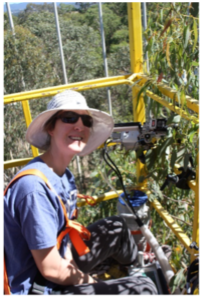
“ Getting the Jan Anderson Award was a great recognition of my research to understand plant responses to both elevated CO2 and climate warming, including my contribution to several global datasets. It was important to be recognised by peers in Australia, especially during a tough year for mental healthy (COVID). The award led to an invitation as a discipline representative of Whole Plants for ASPS.”
Dr Kristine Crous, joint Jan Anderson award 2020.
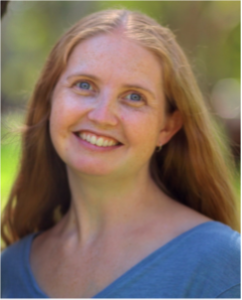
“The Jan Anderson Award aligns so nicely with the society’s mission to promote Australian plant research in a collaborative and fair manner, by simultaneously pushing for gender equity and fostering the development of early/mid-career researchers. Since receiving this, my first major award as a researcher, I have gained confidence to engage with more funding opportunities and career development programs, which will ultimately help me become a more independent and well-rounded plant scientist. I believe it is essential for awards like this to exist, but also so important to encourage our female (and often reluctant) co-workers, to nominate. Whether career focussed, or divided between career and family, I feel that many women sell themselves short and will greatly benefit from honest encouragement. I wouldn’t have done it without a little push from my own co-workers and collaborators!”
Dr Crystal Sweetman, joint Jan Anderson award 2020.
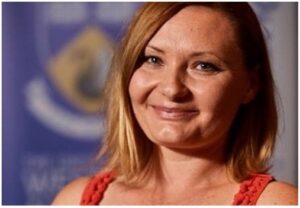
“I am truly honoured to win this prestigious award, especially as Australia has so many wonderful female plant scientists. I am completely fascinated by the complex interactions within a plant cell and I am driven by the discoveries we make in the lab. I hope that I can encourage a passion for plant science and be a positive role model for a career in plant research,”
Dr Monika Murcha, Jan Anderson award 2019.
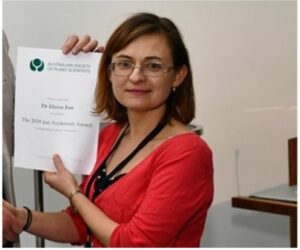
“I was so honoured to receive the inaugural Jan Anderson Award in 2018. Delivering the lecture at Combio 2018 to such a warm and supportive community was a true highlight and enabled me to reflect on the fantastic mentors and colleagues I have had. I feel real change is afoot to enable people to balance a research career with all the other great things in life (family, leisure time, community). This is not just to support women to navigate the challenging but rewarding path to a research career but also opens up a different way for everyone to lead successful and balanced lives.”
A/Prof Eloise Foo, Jan Anderson award 2018.
We hope each of you can devote some time to reading the policy and then participate in the mentimeter. It will remain open until our November meeting giving plenty of time to receive your ideas. They are anonymous and will be populated in the window below. You can participate and add as many suggestions as you like.
Please click on this link: ASPS Diversity and Inclusion Policyto read the detailed policy. |
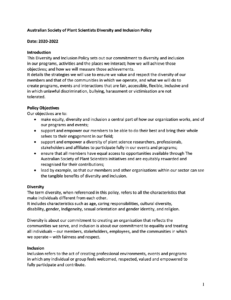 |
Click: mentimeter to participate in the mentimeter survey.
Please keep your ASPS membership up to date and encourage your colleagues and students to join ASPS.
Tweet to @asps_ozplants your news and upcoming events.
August 2021 Phytogen – National Science Week – That’s a Wrap.
29 August 2021
Welcome to Phytogen for August 2021. Here is an article summarising many National Science Week events throughout August. Thank you all for your contributions and hard work.
National Science Week has officially wrapped up for 2021. This year, the theme for ASPS events was “Plant Science Safeguarding Our Future Food Security”. ASPS kicked off with a “Meet a Plant Scientist” video series, with ASPS members at diverse career stages and representing a wide array of fields of plant science submitting 30s videos introducing themselves and their research – you can still see them all here: https://www.youtube.com/playlist?list=PLCjVjret6uSjalUbDCO8a8jjuJesKZ8y3.
Dr. Frances Sussmilch UTAS, Prof. Uli Mathesius ANU, and Sabrina Davies UWA, among many in the “Meet a Plant Scientist” video series.
In South Australia, Dr Megan Shelden, Dr Beth Loveys and Dr Georgia Koerber organised a very successful face-to-face event on 22nd August at the Waite Campus, University of Adelaide, with a series of engaging talks and tours explaining the pivotal role plant scientists and agriculturalists play in feeding and clothing us all. This included talks by Megan, Prof. Martin Cole, Prof. Rachel Burton, and PhD candidate Ali Gill, with Sciren running sessions for people to extract DNA from strawberries and make terrariums, and tours of the Waite Arboretum, Plant Accelerator, and TERN Plant and Soil Library.
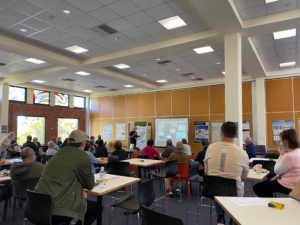
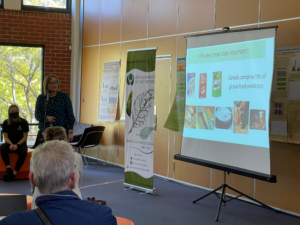
Prof. Martin Cole talking about Food Security and Dr. Megan Shelden explaining why cereal crops are important.
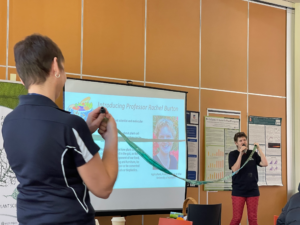
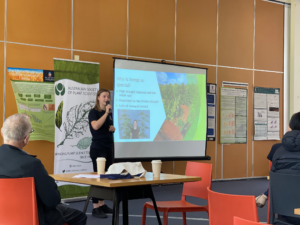
Prof. Rachel Burton and Dr. Beth Loveys showing people in Adelaide how long their digestive systems are and Ali Gill explaining why hemp is special.
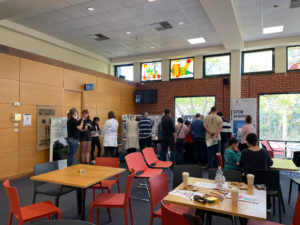
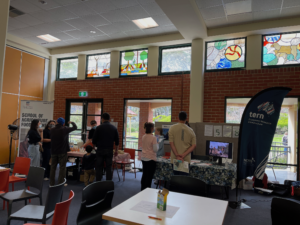
Stalls for University of Adelaide’s School of Agriculture, Food and Wine and TERN, Terrestrial Ecosystem Research Network, University of Adelaide’s Postgraduates Association at the Waite, the Australian Plant Phenomics Facility and the STEM academy.
In Victoria, Dr. Kim Johnson and Dr. Janet Wheeler shifted events online. They ran an interactive session called “Project Feed 10 billion” with 80 Virtual Schools Victoria, year 8-9 students and 10 teachers on 19th August. The session covered the challenges of feeding the future population with sustainable nutritious foods. Kim and Janet also ran a demonstration to 45 students and 5 teachers from Reservoir Views Primary School where they showed a healthy and less healthy meal going through the digestive system.
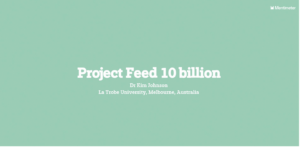
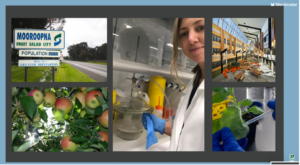
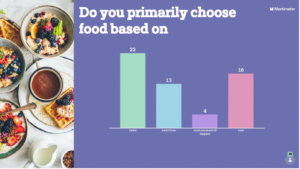 Dr. Kim Johnson with “Project Feed 10 billion” from La Trobe University and survey results from interactive session with 80 Virtual Schools Victoria, year 8-9 students.
Dr. Kim Johnson with “Project Feed 10 billion” from La Trobe University and survey results from interactive session with 80 Virtual Schools Victoria, year 8-9 students.
In Sydney, Dr. Claudia Keitel, in collaboration with the University of Sydney’s Plant Science and Agriculture academics, staff from the Sydney Institute of Agriculture (SIA) and the University’s Outreach Team, organised a series of talks and interactive activities online on the 20th August, with around 200 participants from 22 schools joining on the day. Talks from Prof. Brent Kaiser, Prof. Daniel Tan, Assoc. Prof. Brian Jones, Prof. Robert Park and Dr. Floris van Ogtrop focused on topics such as future opportunities for products and businesses based on plant protein, the future of cotton production, CRISPR as a 21st century breeding tool, genetic approaches to control plant diseases, and urban agriculture. The activities gave attendees the opportunity to learn how plants grow to produce vegetables we eat, how genetics and environmental conditions influence plant traits, how to fingerprint wheat chromosomes and identify chromosomal fragments introduced from wild relatives with Assoc. Prof. Mary Byrne, Assoc. Prof. Marcus Heisler, Dr. Claudia Keitel, Assoc. Prof. Rosanne Quinnell and Dr. Peng Zhang. You can find more information about this event here: https://www.sydney.edu.au/science/news-and-events/events/future-plants-for-food-security.html.
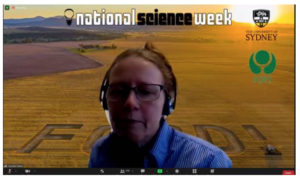
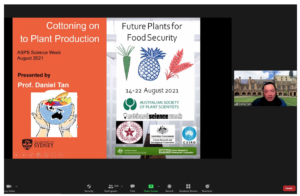
Dr. Claudia Keitel, addressing 206 participants from 22 schools, in Sydney and Prof. Daniel Tan giving a talk about the future of cotton production.
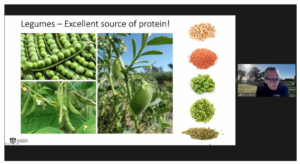
Prof. Brent Kaiser talking about the power of plant protein.
Queensland University of Technology (QUT) offered a virtual tour of the biology labs – you can check them out here: https://cdn.qut.edu.au/media/qut-science-experience-anz/ and https://my.matterport.com/show/?m=cEBNvWzjjw7.
Researchers from other universities and states recorded videos of talks and lab tours for our YouTube channel (https://www.youtube.com/channel/UC4-hDpe7OR3kwpMxy4ES6ng). The ACT was represented with fantastic talks from CSIRO and ANU researchers including our President Dr. Peter Ryan, Jess Hyles, Dr. TJ Higgins AO, Dr. Di He, Prof. Uli Mathesius and Dr. Ricky Milne, and Ryan Ruddick from Geoscience Australia (https://www.youtube.com/playlist?list=PLCjVjret6uSh67u7d2U2B1mGRFARal9mt).
The Byrt Lab at ANU walked us through Agrobacterium-mediated transformation using the floral dip method (https://www.youtube.com/watch?v=Hj0iM3zi6_E&list=PLCjVjret6uSg1pLNehyuIm01NTuIQH7PM). Early career researchers at Southern Cross University, including Dr. Jay Anderson, Master of Science candidate Janelle Schafer, and Dr Priyakshee Borpatra Gohain, each gave great talks about their research (https://www.youtube.com/playlist?list=PLCjVjret6uSjLV-oQh-iMEwaixzbn1zLm).
Prof. Ros Gleadow from Monash University talked about her research on how plants including sorghum and cassava make cyanide (https://www.youtube.com/watch?v=6egOt1qNo58&list=PLCjVjret6uSgZYVZ_DhQ8KZq8Vh5NIC9e).
Prof. Tim Brodribb from University of Tasmania showed us why leaves die during drought stress with a video depicting what happens during this process (https://www.youtube.com/watch?v=0M-sZETVoQ8&list=PLCjVjret6uShxXJbRyx1HIJZbEtyS8tK-).
ASPS President Dr. Peter Ryan in the introduction for the ASPS Science Week 2021 YouTube channel.
Dr. Priyakshee Borpatra Gohain’s talk, within a series from ECRs at Southern Cross University and Prof. Tim Brodribb from UTAS explaining why leaves die during drought.
Members of the Byrt Lab at ANU demonstrating floral dipping for Agrobacterium-mediated transformation.
We will keep the ASPS Science Week 2021 YouTube channel up, so you still have the opportunity to check out any videos you missed.
Registration is now open for our 2021 ASPS hybrid conference on the 25th of November.
Phytogen out now! GPC e-bulletin available too.
23 July 2021
July Phytogen – Best in the World
23 July 2021
Welcome to Phytogen for July 2021. Our thoughts are with all of you as COVID-19 is still quite a challenge. On a positive note, the Olympics will be underway tonight with the opening ceremony and for the next couple of weeks, athletes will be striving to be the best in the World.
Next month, several events will be happening for National Science Week from the 14th-22nd August 2021. To reiterate Peter Ryan’s email: Sydney, some regional areas in NSW and possibly Melbourne and Adelaide will be in lockdown during Science Week. We now encourage all speakers to record their talks and maybe even do virtual tours of the labs etc. Please send all files to this email address prior to Science Week: ausplantsci@gmail.com. They will be curated into groups and themes and placed on a YouTube site that has been prepared for everyone to access.
This weekend, while watching the olympics, take a break and record your 30 second video that will be compiled with others into a promotional video for all our events. In your 30 second video please tell us
(2) your institution,
(3) the piece of plant science research that you are most proud of and
(4) the most pressing plant science research question you want to resolve in the future.
We need your 30 second video files by 25th July.
Instructions for the 30 sec videos (PowerPoint recording is another option):
– Log into Zoom and create a new meeting.
– Select ‘record’. Record yourself (as if in a meeting) explaining the four items above.
– Then stop the recording and stop the meeting (the file should be on your computer).
– Open the file location and make sure it is 30 seconds or less. Check the size and clarity – 30 sec video files should be <4 MB so they are easy to email.
– NB: Zoom allows you to chose a background image relevant to your work (your favorite plant, field site, lab equipment, figure file) – this will make your content more engaging. Email your video files to ausplantsci@gmail.com (if it is too large try sending it to Peter.Ryan@csiro.au). Thank you!
– Contact Caitlin Byrt for assistance (Caitlin.Byrt@anu.edu.au)
We are hopeful for in person events and ASPS now has a website to direct people for booking tickets. Click here. Organisers, remember to send details of your events to Janet (Janet.Wheeler@latrobe.edu.au) as they come together.
The theme for all the events we are organising is: “Plant Science Safeguarding Our Future Food Security: By the middle of the century there will be almost 10 billion people on Earth – an awful lot of mouths to feed, especially when a warming climate makes agriculture more challenging. Scientists may save the day by helping crop species adapt and thrive as growing conditions change.
The Australian Society of Plant Scientists is organising visits to laboratories and field sites across the country. Through talks, displays and demonstrations they give rare insight into the challenges faced by farmers, and how food scientists are working to help.”
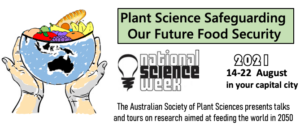
In the coming weeks, look out for ASPS events posted to the “Find an Event” page on the National Science Week webpage, and also posted to ASPS’s twitter account (@asps_ozplants), which hopefully you are all following. Please be part of the action and post your events too.
Events
registration details for our hybrid meeting in 2021 soon………
Please login and check your ASPS membership is up to date. Encourage your colleagues and students to join ASPS. Go to: https://www.asps.org.au/members/join
Tweet to @asps_ozplants your news and upcoming events.
Your National Science Week event, June Phytogen and GPC e-bulletin
16 June 2021
Dear ASPS Members,
June Phytogen can be accessed HERE.
GPC May e-bulletin can be accessed HERE.
Our Society is organising activities during Science Week (14-22 August) to highlight Australian plant science. The theme of our activities is around “Plant Science Safeguarding our Future Food Security”. A series of short, fun and engaging talks and tours will be organised around the country to explain the pivotal role plant scientists and agriculturists play in feeding and clothing us all. We will present some of our research and explain how it will help meet the challenges posed by a growing world population and a changing climate. We’ll emphasise the diversity of plant science. The fact that some of us wear lab coats and rarely grow a plant in soil, while others conduct field trials or predict yields by satellite. The aim of these sessions is to explain what we do, to highlight its importance to society and hopefully to inspire more young people to consider plant science as an exciting career.
The purpose of this email is two-fold:
- to prompt members from universities not listed below to consider organising an event. Contact me for details if you’re tempted.
- to encourage ASPS members to contact the Science Week coordinators at their own university (below) and offer your assistance. Helpers and speakers do not need to be ASPS members.
Contact me if you have questions. Thanks, Peter Ryan
Once you have your National Science Week event organised please email Phytogen editor Georgia Koerber (georgia.koerber@adelaide.edu.au) with a link to your event, a picture and dates for inclusion in the July issue of Phytogen. June Phytogen can be accessed HERE.
Queensland University of Technology – Brett Williams
University of Newcastle – Joseph Pegler (hopefully)
University of Sydney (separate events at the Camperdown and Camden campuses) – Mary Byrne, Brent Kaiser, Robert Park, Marcus Heisler, Claudia Keitel
Australian National University/CSIRO Agriculture and Food – Peter Ryan, Caitlin Byrt, Uli Mathesius
La Trobe University – Kim Johnson, Janet Wheeler
University of Melbourne – Mike Haydon, Michelle Watt
Monash University – Ros Gleadow
University of Adelaide – Megan Sheldon, Beth Loveys, Georgia Koerber, Steve Tyerman, Rachel Burton
Flinders University – Kathy Soole
____________________________________
Dr Peter R Ryan
President, Australian Society of Plant Scientists
Honorary Fellow, CSIRO Agriculture and Food
PO Box 1700
Canberra ACT 2601, Australia
Email: Peter.Ryan@csiro.au
Mob: 0468671565
Recent Posts
Tags
Archives
- June 2025
- May 2025
- April 2025
- March 2025
- February 2025
- January 2025
- December 2024
- November 2024
- October 2024
- September 2024
- August 2024
- July 2024
- June 2024
- May 2024
- April 2024
- February 2024
- January 2024
- November 2023
- October 2023
- September 2023
- August 2023
- July 2023
- June 2023
- May 2023
- April 2023
- March 2023
- February 2023
- December 2022
- November 2022
- October 2022
- September 2022
- August 2022
- July 2022
- June 2022
- May 2022
- April 2022
- March 2022
- February 2022
- January 2022
- December 2021
- November 2021
- October 2021
- September 2021
- August 2021
- July 2021
- June 2021
- April 2021
- March 2021
- February 2021
- January 2021
- December 2020
- November 2020
- October 2020
- September 2020
- August 2020
- July 2020
- June 2020
- May 2020
- April 2020
- March 2020
- February 2020
- January 2020
- December 2019
- November 2019
- October 2019
- September 2019
- August 2019
- July 2019
- June 2019
- May 2019
- April 2019
- March 2019
- February 2019
- January 2019
- December 2018
- November 2018
- October 2018
- September 2018
- August 2018
- July 2018
- June 2018
- May 2018
- April 2018
- March 2018
- February 2018
- January 2018
- December 2017
- November 2017
- October 2017
- September 2017
- August 2017
- July 2017
- June 2017
- May 2017
- April 2017
- March 2017
- February 2017
- January 2017
- December 2016
- November 2016
- October 2016
- September 2016
- August 2016
- July 2016
- June 2016
- May 2016
- April 2016
- March 2016
- February 2016
- January 2016
- December 2015
- November 2015
- October 2015
- September 2015
- August 2015
- July 2015
- June 2015
- May 2015
- April 2015
- March 2015
- February 2015
- January 2015
- December 2014
- November 2014
- October 2014
- September 2014
- August 2014
- July 2014
- June 2014
Copyright 2017 Australian Society of Plant Scientists Disclaimer & Privacy
Website by Michael Major Media


